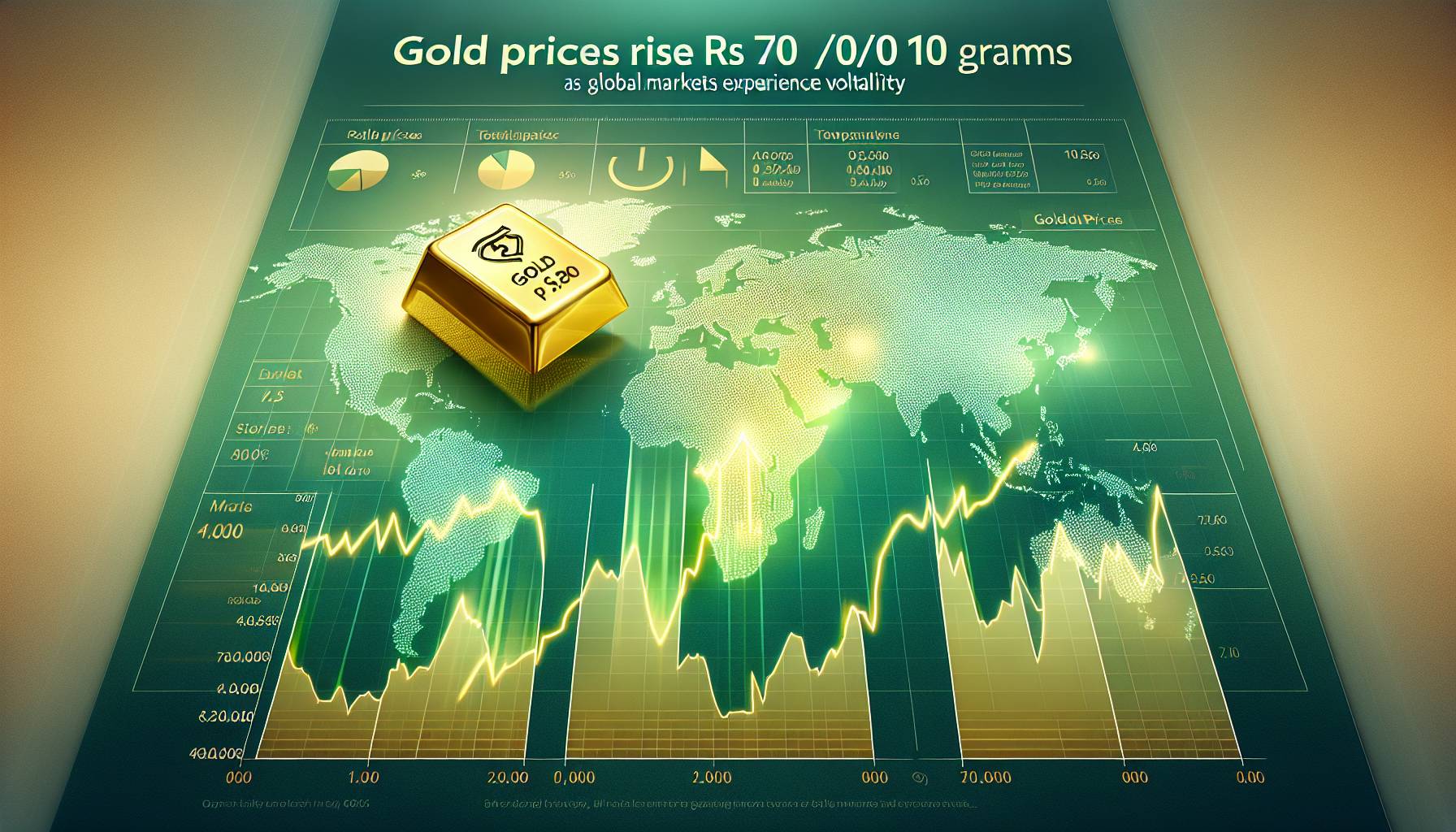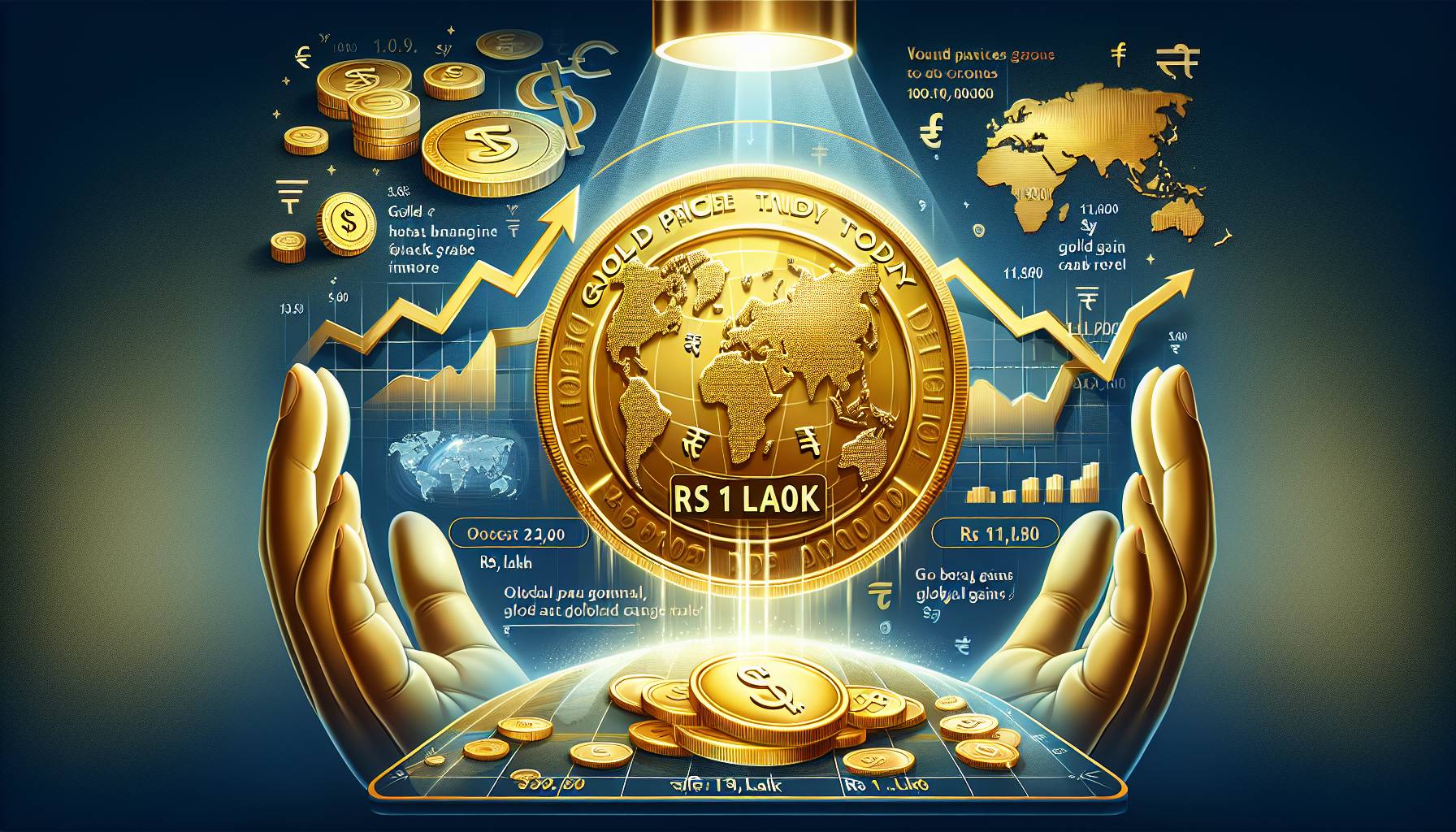Uncategorized
Kinross Gold Surpasses Q2 Earnings Predictions Amid Rising Gold Prices
Revenue growth driven by gold prices In the second quarter, KGC experienced a significant boost in revenue, primarily driven by the surge in gold prices. The global economic climate, marked by inflationary pressures and geopolitical tensions, has led to increased demand for gold as a safe-haven asset.
Gold and Silver Market Update: Gold Dips While Silver Soars
Domestic market trends On Tuesday, the domestic market witnessed varied movements in the prices of precious metals. The price of silver experienced a notable increase, capturing the attention of investors and traders alike. This surge in silver prices was attributed to heightened demand and market speculation, which drove up the value significantly.
Today’s Gold Rate Surge: August 5 Prices Across Cities
Current gold prices in major cities As of August 5, the price of 24k gold per 10 grams in major cities across India is as follows: Mumbai: Rs 1,01,133 Delhi: Rs 1,01,150 Bangalore: Rs 1,01,120 Hyderabad: Rs 1,01,140 Chennai: Rs 1,01,160 Kolkata: Rs 1,01,130 Pune: Rs 1,01,125 Ahmedabad: Rs 1,01,135 The price of 22k gold per 10 grams in these cities is slightly lower, reflecting the difference in purity and market demand.
Gold Prices Surge 29% in 2025, Outperforming All Asset Classes
Factors driving the surge in gold prices The remarkable 29% increase in gold prices in 2025 can be attributed to several key factors. One of the primary drivers was the heightened geopolitical tensions that created uncertainty in global markets. Investors often turn to gold as a safe haven during times of instability, leading to increased demand and, consequently, higher prices.
Gold Prices Rise Rs 700/10 Grams as Global Markets Experience Volatility
Impact of U.S. employment figures on precious metals The recent release of U.S. employment figures has had a significant impact on the precious metals market. Weak employment data often signals economic uncertainty, prompting investors to seek safer assets. Precious metals, particularly gold, are traditionally viewed as a hedge against economic instability and inflation.
Gold Prices Decline as Global Interest Rates Fall
vietnam gold market trends On Monday morning, Vietnam’s gold market witnessed a noticeable decrease in prices, aligning with the subtle dip in global bullion rates. The local gold prices have been fluctuating in response to international market trends, reflecting the interconnected nature of the global economy.
Gold Prices Retreat After Jobs Data Surge
Market reaction to Friday’s data Monday morning began quietly for bullion, as markets were still reeling from Friday’s influx of data. The unexpected figures released had a significant impact on investor sentiment, causing a ripple effect across various asset classes.
Gold Prices Decline 1.07% Despite COMEX Gains and Positive Outlook
Gold price decline in Malaysia Gold prices in Malaysia experienced a notable decline today, decreasing by 1.07%. This drop reflects a significant shift in the market, impacting investors and traders who closely monitor gold as a key commodity. The reduction in gold prices is part of a broader trend observed in the region, influenced by various economic factors and market dynamics.
Gold Price Forecast August 4, 2025: Buy or Sell?
Impact of global trade tensions on gold prices Gold prices have experienced significant volatility as a result of ongoing global trade tensions. These tensions have been primarily driven by the trade disputes between major economies, notably the United States and China.
Gold Price Today: Yellow Metal Dips Despite Global Gains—Will It Cross Rs 1 Lakh?
local market trends In the local market of Delhi, gold prices have experienced a notable decrease, dropping by Rs 400 to settle at Rs 97,620 per 10 grams. This decline comes despite the upward trend observed in global markets. The local market dynamics are influenced by a variety of factors, including domestic demand and currency fluctuations.









